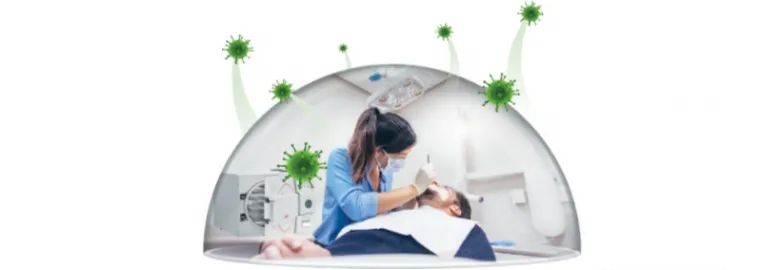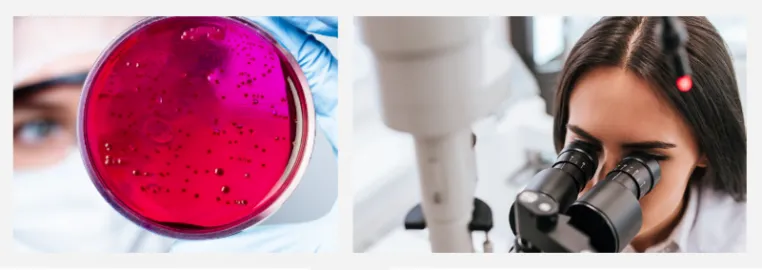
The coronavirus (SARS-CoV-2) epidemic suggests that it is quite stable, and there are studies with the current and related viruses from the same family, (e.g. SARS).
Survival study with SARS-CoV-2 demonstrated that the virus can survive in aerosols for a few hours (median survival time 2.7 hours) 5.
Survival studies with SARS and other surrogate viruses were carried out and found the following data:
• Survival in body fluids, sputum, serum, feces – 4 days
• Respiratory secretions – 4-5 days
• Drying on plastic material – 6-9 days
• Drying on porous material (papers) – 4 days
As well as survival at 56°C – 90 min 67°C – 60 min 75°C –30 min

Based on the studies in our literature review, see references below, for every 10 degrees centigrade rise above 56, kill time for this virus for complete inactivation (at least 6 log), gets shorter significantly. One can deduce that at 100 °C, kill time will be around 5-7 min.
Based on that, Tuttnauer process for SARS-CoV-2 decontamination, for surface and sir presence, is configured at 105 °C, for 15 min.
The report was put together by Eitan Israeli Ph.D.
Expert in biosafety and biohazard issues, in laboratories, biotechnology, industry, hospitals. Consultant on biohazard and biosafety problems. Offering courses in biosafety on different level. Guest lecturer at Feinberg-Weizmann Institute of Science, Bar-Ilan, Technion, Ben-Gurion Universities. Author of 5 books on biosafety. - Eitan Israeli Ph.D
References
- Viruses. 2012 Nov; 4(11): 3044–3068. Published online 2012 Nov 12. doi: 10.3390/v4113044, PMCID: PMC3509683 PMID: 23202515, Human Coronaviruses: Insights into Environmental Resistance and Its Influence on the Development of New Antiseptic Strategies, Chloé Geller, Mihayl Varbanov, and Raphaël E. Duval*
- Appl Environ Microbiol. 2010 May; 76(9): 2712–2717. Published online 2010 Mar 12. doi: 10.1128/AEM.02291-09, PMCID: PMC2863430, PMID: 20228108
- Effects of Air Temperature and Relative Humidity on Coronavirus Survival on Surfaces, Lisa M. Casanova1, * Soyoung Jeon2, William A. Rutala3, David J. Weber3, and Mark D. Sobsey1
- Med Microbiol Immunol. 2005 Jan;194(1-2):1-6.Stability and inactivation of SARS coronavirus. Rabenau HF1, Cinatl J, Morgenstern B, Bauer G, Preiser W, Doerr HW.
- Aerosol and surface stability of HCoV-19 (SARS-CoV-2) compared to SARS-CoV-1, https://www.medrxiv.org/content/10.1101/2020.03.09.20033217v2.full.pdf
About Tuttnauer
Tuttnauer provides end to end sterile processing solutions for dental and ophthalmic clinics, including advanced autoclave sterilizers, washer-disinfectors, indicators, and sterile processing products. The new Class B autoclave with a virus protective shield is a highly advanced autoclave explicitly developed for dental, ophthalmic and medical practices by providing an extra layer of protection. The Autoclave goes above and beyond standards by meeting all sterilization needs and creating cyclic parameters that accommodate with the most challenging loads, ensuring load sterility, efficient drying, helping dentists achieve today's challenging workloads and provide superior patient care, without risking cross patient contamination.
Contact us for further information